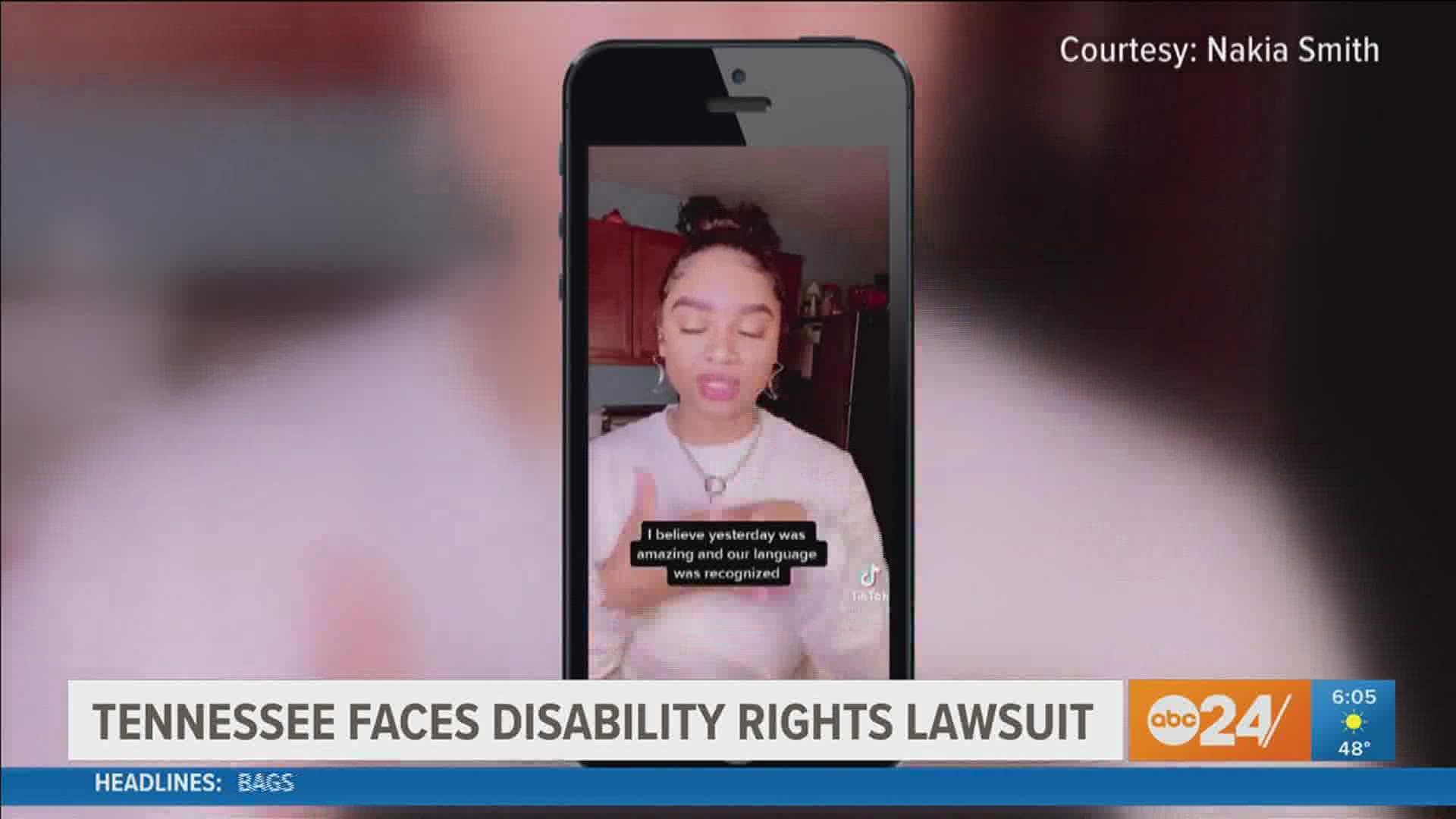MEMPHIS, Tenn. — The State of Tennessee could have a major lawsuit on its hands.
The nonprofit, Disability Rights Tennessee, is suing the state alleging discrimination against Deaf individuals who use American Sign Language.
When it comes to the country’s primary language, English takes a back seat in the Deaf community.
“My priority language is ASL American Sign Language. And it is completely different than English,” said James Calvert, Disability Rights Tennessee Board member and Deaf advocate.
Calvert was born Deaf. American Sign Language or ASL is a visual language that he learned when he was young. He communicated through an interpreter.
“Growing up in the world, it was just very frustrating. Because I did feel like I did not have full access, and it you know, we had to really fight to have interpreters,” said Calvert.
That fight continues today.
Disability Rights Tennessee, a nonprofit advocating for those with disabilities, is suing the State of Tennessee, Department of Mental Health and Substance Abuse Services, and Department of Developmental and Intellectual Disabilities alleging discrimination against Deaf individuals who use ASL in their care.
Disability Rights Tennessee Attorney, Stacie Price, said in some treatment or recovery meetings, an ASL interpreter is not always provided.
“They sit at these group meeting, group meetings, having no access to communication, not knowing what others are saying,” said Price.
“Without an interpreter, the Deaf individuals just sit and are completely left out. And that's very dangerous to their mental health. And it is a big challenge,” said Calvert.
Price said not having an interpreter denies persons adequate treatment, the opportunity for quality of life, and independent living.
“We want all Deaf people to be treated equally, to have the same access to services that people who are hearing have. We want them to be able to communicate in their own language,” said Price.
“We have been isolated. And I've noticed that and, you know, independence is very important. And, you know, making sure that everybody is equal,” said Calvert.
We reached out to those state departments listed in the lawsuit.
They could not comment on pending litigation.

